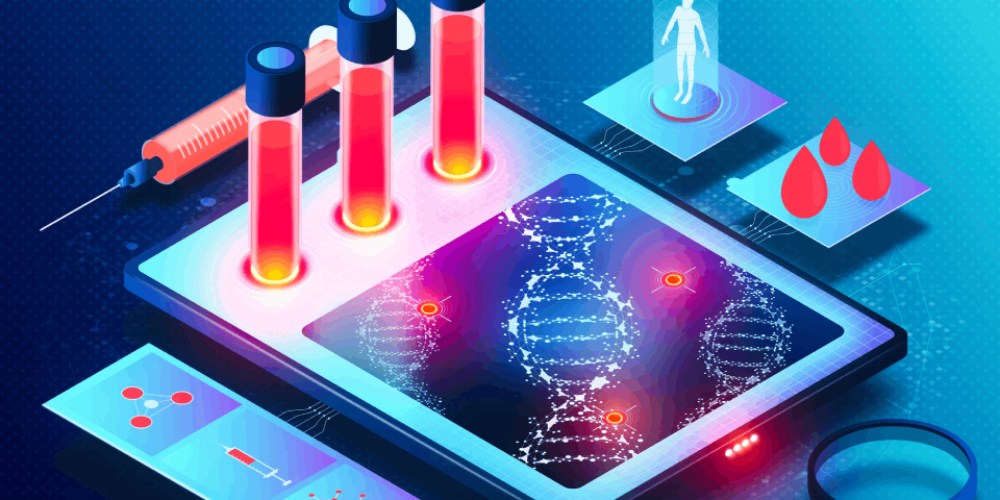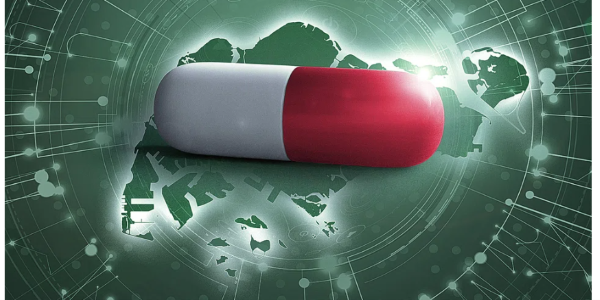A*STAR NEWS
The Vital Role Of Diagnostics In Preventive Healthcare
By Dr Weng Rui Fen, Deputy CEO and CTO, DxD Hub

Singapore’s healthcare system is at a turning point. As the country’s population continues to age, with about one in four people expected to be aged 65 and above by 2030, the susceptibility to a variety of chronic diseases will increase. These challenges necessitate a closer look at an often-overlooked aspect of healthcare: diagnostics.
Understanding the importance of diagnostics in the early detection of diseases and interventions is essential for a sustainable healthcare system. A lack of access to diagnostics can lead to the delayed detection of diseases, poorer health outcomes, and increased costs plus burden on healthcare systems.
One of the most compelling examples of diagnostics in action was during the COVID-19 pandemic. Notably, the Fortitude Kit was one of the world’s first, and the Resolute Kit contributed significantly to enhancing testing efficiency. Within a year of the virus’s outbreak, Singapore's local healthcare and innovation ecosystem came together to develop a range of COVID-19 test kits, helping increase Singapore’s daily testing capacity from 2,900 to 40,000. This swift response enabled the quick identification of infected individuals and control of the virus's spread, allowing Singapore to be among the first countries to reopen its borders safely.
Singapore’s response to the COVID-19 pandemic highlights the broader potential of diagnostics innovation in healthcare. By combining early intervention with new diagnostic technologies, including the emerging use of digital tools, Singapore is positioned to tackle its healthcare challenges from ageing to chronic diseases and rising costs.
New innovations for earlier diagnostics
Singapore's commitment to diagnostics is evident through initiatives like the creation of the Diagnostics Development (DxD) Hub in 2014. Hosted by the Agency for Science, Technology and Research (A*STAR), this national platform for diagnostics unites clinicians, researchers, entrepreneurs, and industry professionals. Their collaboration speeds up innovative diagnostic solutions to meet evolving healthcare demands and enhance patient outcomes.
Among the innovative diagnostic tools that have emerged from the local ecosystem, GASTROClear stands out as a prime example. This blood test, developed by Mirxes, an A*STAR spin-off with strong support from the National University of Singapore (NUS), in conjunction with local research institutions and hospitals, identifies patients at risk of gastric cancer.
Gastric cancer, a common yet often late-diagnosed cancer in Singapore, is difficult to detect early. Traditional diagnosis methods like endoscopy – the gold standard but an invasive procedure – are costly and uncomfortable, and typically used only by a small subset of patients. Early symptoms such as gastrointestinal discomfort can be misleading, as they are common to many other conditions, and the discomfort, cost, and inconvenience of endoscopy mean it is not routinely used as an early testing tool.
In contrast, GASTROClear offers a simpler, more cost-effective, and less intimidating option. Individuals, especially those at risk, are more likely to get themselves tested. Available through various healthcare providers, the minimally-invasive test can detect early-stage gastric cancers with significant accuracy.
Transforming healthcare with digital diagnostics
Advances in digital diagnostics, such as software as a medical device, alongside the emergence of digital therapeutics, offer promising avenues to improve our population health. For instance, increasingly powerful artificial intelligence (AI) can aid clinicians to rapidly stratify patients, select the best treatment for each of them, and then monitor their progress. This enhances treatment efficacy and cost-effectiveness while minimising unnecessary side effects.
Earlier this year, SGH began to trial an AI-based cardiac risk stratification tool, called aiTriage, that can analyse the people who arrive at its emergency room with chest pain. The system was co-developed by SingHealth and DxD Hub, and licensed to local start-up TIIM Healthcare.
While life-threatening events such as heart attacks can trigger chest pain, it can also be due to conditions such as anxiety and panic attacks. Since the causes have no visible differences, all patients have to go through extensive diagnostic tests, often leading to lengthy and costly visits to the emergency department.
The AI tool integrates heart rate variability readings – measurements that reflect the natural variations in time between heartbeats – and the patient’s medical history, age and other risk factors, and matches the data to a validated dataset to calculate a risk score.
This not only streamlines the whole process from monitoring to triage, reducing it to as few as six to seven minutes, but also ensures that those at higher risk receive faster treatment. Those with low risk can leave after two hours of observation, compared to the previous eight hours.
Recognising the transformative potential of digital diagnostics, the government launched the Digital Health Accelerator (DHA) in July. This programme aims to stimulate the development and deployment of digital health solutions. By bringing together key partners such as the DxD Hub, Ministry of Health (MOH), the National University Health System, National Healthcare Group, SingHealth, Synapxe (Singapore's national health-tech agency), and the Health Sciences Authority, the DHA is set to forge innovative pathways that enhance patient care and reshape Singapore’s healthcare landscape.
Towards a healthier future through preventive care
Last year, MOH launched its Healthier SG initiative, which aims to shift the Singapore healthcare system from primarily caring for the sick to an approach that emphasises preventive care and helping Singaporeans take proactive steps to manage their health, prevent the onset of chronic diseases, and lead healthier lifestyles.
Investing in diagnostics to enable early detection of diseases and personalised preventive care is essential to this effort. Accompanied by initiatives to raise awareness about and prioritise prevention alongside treatment, this can empower Singaporeans to lead longer and healthier lives, extending the healthspan of the nation’s population.
Was This Article Helpful ?
A*STAR celebrates International Women's Day

From groundbreaking discoveries to cutting-edge research, our researchers are empowering the next generation of female science, technology, engineering and mathematics (STEM) leaders.
Get inspired by our #WomeninSTEM




